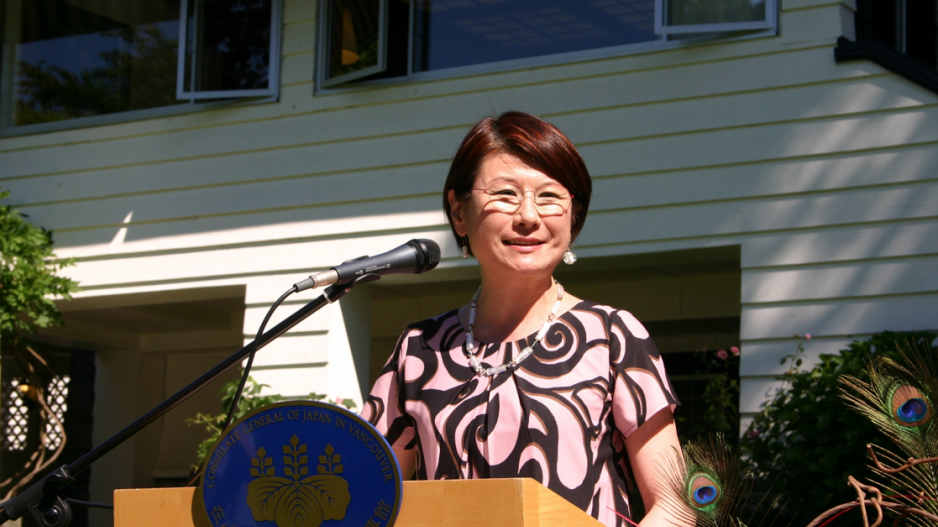The popularity of a program recruiting B.C. university graduates to work in Japan as temporary English teachers is rebounding – something officials hope will translate to a larger alumni network that aids Tokyo’s development of business ties with Vancouver.
The Japan Exchange and Teaching program (JET) is in its 30th year of bringing foreign nationals to the country to teach English in Japanese kindergartens, elementary schools and high schools. Officials at JET’s local “send-off” event last month said 52 candidates departed from Vancouver this year, up from 43 last year.
While some credit the phenomenon to Tokyo’s more aggressive effort to improve Japan’s English competency ahead of the 2020 Tokyo Olympic Games, Asako Okai, Japan’s consul general based in Vancouver, said the numbers also appear to reflect stronger interest among B.C.’s recent graduates to head to Asia.
The rise in interest, she added, is crucial for developing Japan’s trade relations with B.C., because those who return from the JET program – usually after a one year – tend to bring their personal experiences back to Vancouver and, eventually, help establish business ties between the two sides.
As such, Japanese officials say they are encouraging program alumni to keep their interaction with Japan after they return to Canada and meet frequently to develop a personal/professional network to create a foundational group that can boost more trade.
“Many alumni have been engaged continuously in relationships with Japan and Canada, and I’m happy to see more people joining that crowd,” Okai said, naming several local consulate staff as JET alumni and identifying Avi Salsberg, managing director of the B.C. Trade and Investment Office in Tokyo, as another contributing alum.
“We believe that many [of the new JET participants] will continue to be the bridge between the two countries.”
Returning B.C. students from several different markets have alumni networks in Vancouver, but those from two countries in particular – Japan and China – have been focused on gathering to form network groups that would help Canada boost economic relations with Asia, with encouragement from Tokyo and Beijing, respectively.
B.C. alumni of Chinese college programs, for example, formed the BC Studies in China Alumni Network (BCSCAN) last year. The group meets twice annually at events hosted by the local Chinese diplomatic mission.
Richard Liu, who founded the Canadian Alumni Network (the national equivalent to BCSCAN), said the local group has more than 150 members despite its relatively recent history and that the potential of empowering alumni groups to spearhead B.C. efforts in Asia cannot be understated.
He noted the fact that current head executives for both Apple (Nasdaq:APPL) and Starbucks (Nasdaq:SBUX) in China are B.C. alums – SFU grad Isabel Ge Mahe for Apple, University of British Columbia grad Belinda Wong for Starbucks – shows how valuable the skill sets of an overseas alum can be in the business realm and added Canada should do more to help young Canadians go abroad.
“To put this in perspective there were less than 4,000 Canadian students in China in 2016, while currently 40,000 students from China study in B.C. alone,” Liu said.
“As far as the Canadian Alumni in China are concerned, the numbers are growing at a phenomenal rate. … However, there seems to be a disconnect with the Canadian (mainstream) population still.”
Canadians usually cite cost as the top barrier to going abroad for educational exchanges, given the longer distance to neighbouring countries across either the Pacific or the Atlantic Ocean.
And the challenge doesn’t end after someone from B.C. travels abroad on an exchange, said Tai Lam, president of the B.C. branch of the JET Alumni Association. Some returning participants choose not to connect, drifting off from the alumni network and the possibility to capitalize on their cross-cultural experience in the business world.
But, she added, those who connect and stay engaged often enjoy a camaraderie beyond just the potential of professional gains, and many are already quietly carrying out their roles of aiding the cross-cultural interaction process in their workplace. •




